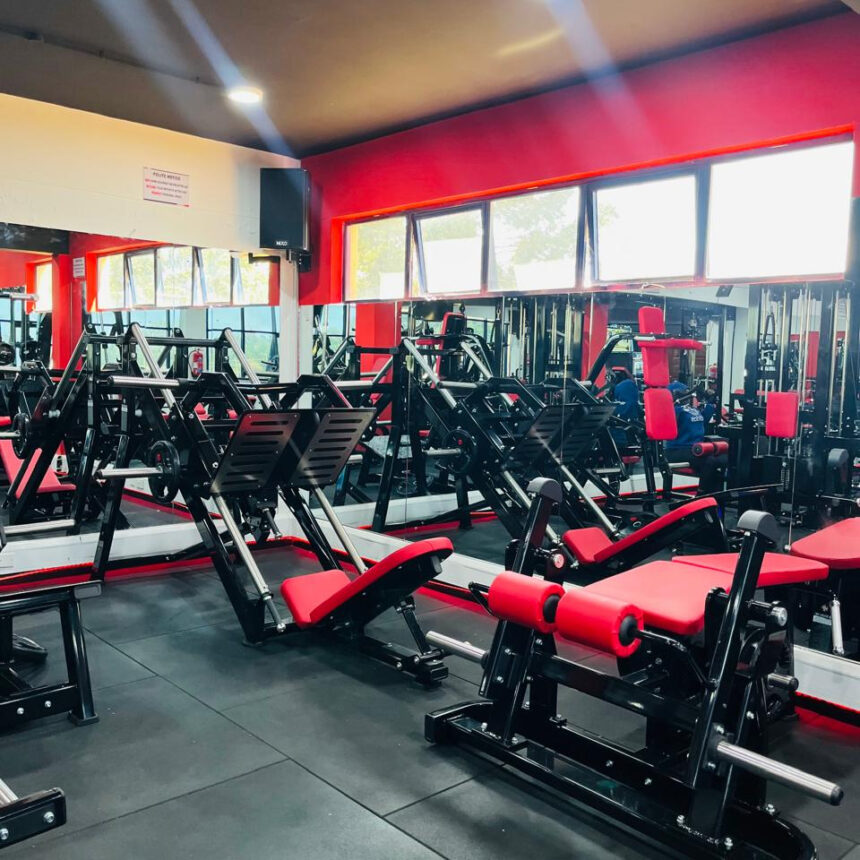By Bonface Orucho
The African debut of popular global workout competition, the “World Series of Fitness Racing” in 2024 is the latest testament to an unfolding fitness culture revolution on the continent.
Hyrox, through its African subsidiary, Hyrox Africa, is set to host an event at the Cape Town Convention Centre in South Africa on September 21st. The Hyrox challenge involves eight ‘functional’ exercises—sled pushing, burpee broad jumps, rowing, and so forth—separated with 1-kilometer runs in between each of the individual exercises.
With a consistent race format across the work, participants’ points are accumulated and placed in a global leaderboard, out of which a World Championships is created for top participants at the end of each race season.
Hyrox’s global expansion is spearheaded by African investment company, Rumble Ventures, which in 2024, is expected to take the competition’s debut into new markets, including in South Africa, Canada, Mexico, Taiwan and Korea.
The competition already commands a huge following in Europe. According to the Hyrox website, in 2023, the event was hosted across more than 40 races globally, where over 90,000 athletes participated.
The global fitness competition is coming to Africa at a time when the continent’s fitness wellness culture is evolving, with more people interested in workout and fitness exercises than before.
This growth is partly attributed to the increasing awareness of the health benefits of physical health, thanks to social media – as well as tech solutions such as the digitization of workout content.
“Behavioral factors such as the fear of excess weight, for instance, among women is also driving the ongoing demand… combining physical activity with healthier diets can yield desired results,” Judith Moraa, a nutrition and wellness expert, explained.
Notably, fitness is not an entirely new concept in Africa, with the continent producing some of the most successful athletes globally in various competitive sports. However, an active exercise culture is also emerging.
One of the indicators of this trend is the growing number of fitness gyms on the continent, together with the number of gym-goers.
Thomas Akatsa, a fitness coach at Wazito Fitness Centre, a Nairobi-based fitness facility, has witnessed the shifting attitudes since 2016 when the facility launched.
“We continue to register more numbers… right now, people have changed their perspectives about fitness,” he explained.
Notwithstanding high charges, Africans are willing to stretch their pockets to be part of the healthy living trend. A 2019 report, for instance, by the First National Bank of South Africa established that South African consumers spent more than US$1.6 billion (R30 billion) annually on health and fitness.
International health and wellness companies such as Virgin Active have successfully tapped into the growing market creating health clubs in South Africa, Namibia, Botswana, Italy, Australia, Singapore, Thailand and the UK.
Other international brands such as Planet Fitness, Zone Fitness, Gym Company, Viva Gym, Moove Motion Fitness, Motion Fitness, Go Health Gym, Ignite Fitness, and many others are actively expanding service delivery across African markets especially in South Africa.
Similar entities can be expected considering projections by German research firm Statista show the health and fitness market in Africa will grow by 9.48% between 2022 and 2027 resulting in a market volume of US$26.91 million in 2027.
However, beyond the physical gym-goers, there is a growing number of Africans who are practicing fitness and exercising virtually over the internet leveraging health and wellness applications and associated content on platforms such as YouTube.
A 2023 health article on Techpoint details the role technology is playing in the accessibility of exercise and workout content in Africa.
According to the report, technology is enabling individuals to “follow personalized workout plans, access online classes and information, be part of online communities, and facilitated creation of home-made workout equipment.”
The #afrobeatfitness, an Instagram hashtag, showcases a vibrant African fitness movement that incorporates Afrobeat music and dance moves into workouts, a good example of the use of technology in workout and fitness.
Moraa explains that the ongoing trend will result in positive health outcomes amid a growing threat of non-communicable diseases (NCDs), including cardiovascular diseases, cancer, respiratory disease, and diabetes.
“The health risks increase as the BMI rises above 24.9. Independently, factors such as smoking habits raise the health risks but physical fitness lowers them,” she explained.
According to WHO, between 50 and 88% of deaths in 7 countries especially in small island nations as of 2022 were due to noncommunicable diseases. In fact, the same report showed in the African region, the number of people living with diabetes is expected to reach 47 million by 2045 up from 19 million in 2019.
Achieving better outcomes is achievable in Africa with countries such as Uganda setting a reputable precedence. A 2019 report by WHO assessing fitness levels of people in 168 countries between 2001 and 2016 revealed Uganda to be the world’s fittest country alongside Finland which topped the developed nations category.
bird story agency





